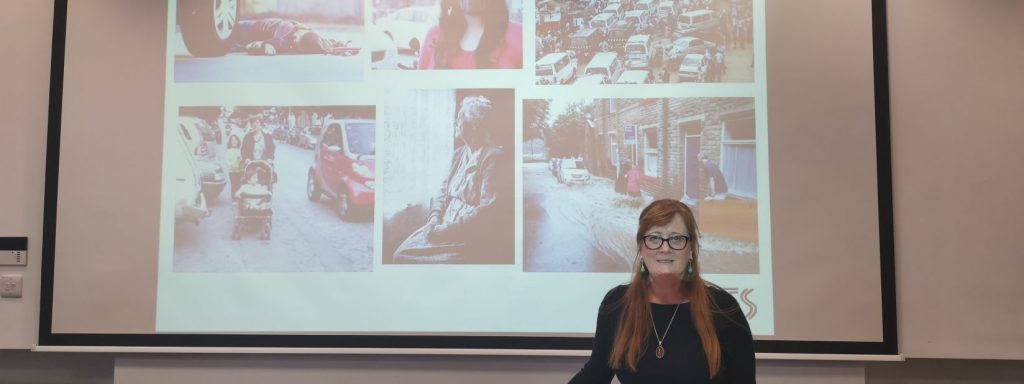
Professor of Transport and Social Analysis Karen Lucas discussed her newest research on transport, poverty and Inequalities in Mobility and Access in the UK.
Transport poverty was the subject of discussion in a panel hosted by the University of Salford last weekend.
The discussion involved public transport and the services it provides, with regards to members of the public that have been affected by physical or financial disabilities and happen to be in the lower social spectrum.
The panel saw professor Karen Lucas, who is also the Deputy Director of the Leeds Social Sciences Institute, elaborate on her newest work about Inequalities in Mobility and Access in the UK.
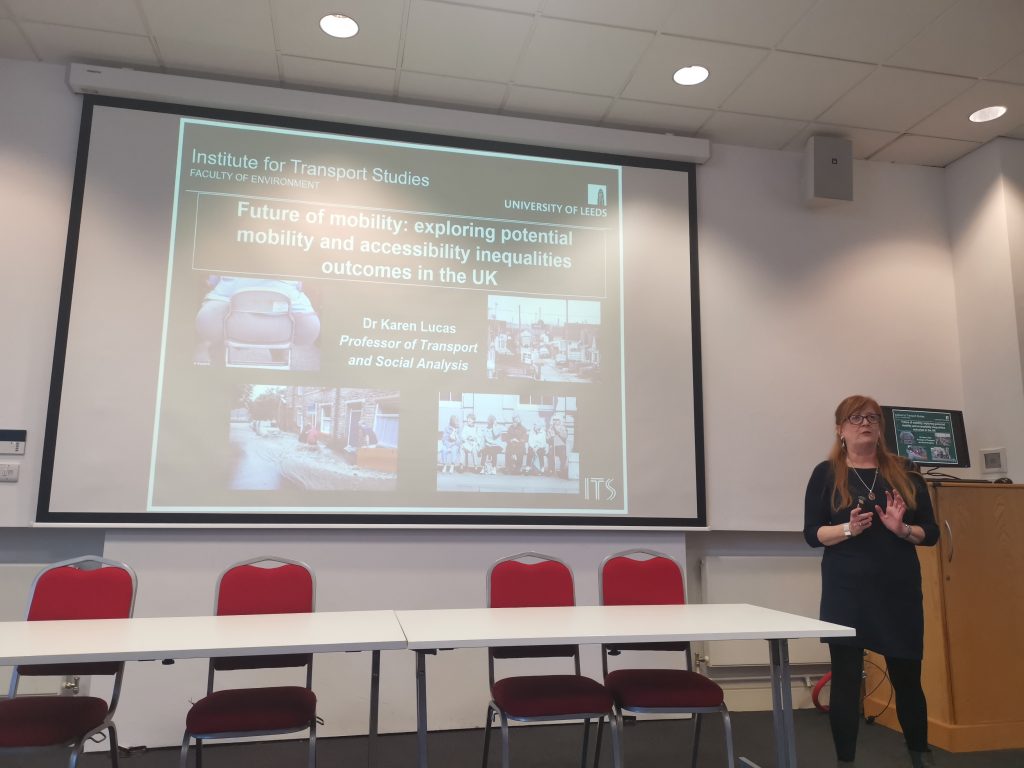
The report is a cumulative result of more than two decades of researching the social relations between transport and the public.
It looks at a social disadvantage that Mrs Lucas describes in her joint research as “transport poverty”, or the inability to experience what life has to offer because of limited transport links that actually get you there.
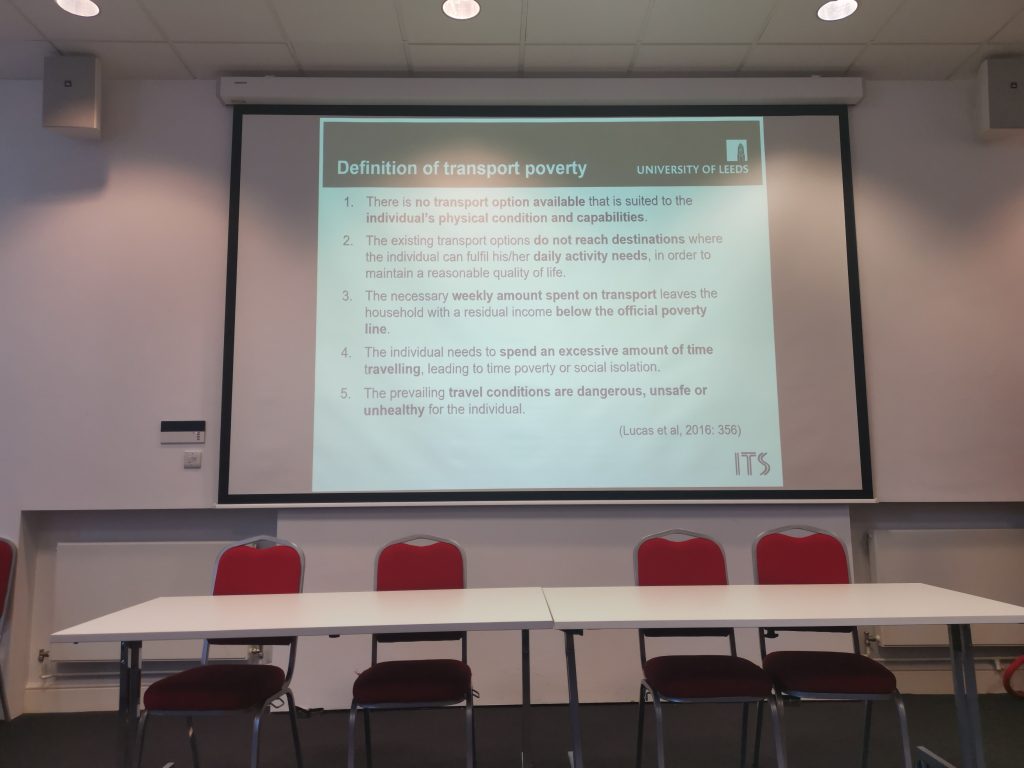
“We sat down one day with my colleagues and assessed that transport poverty means no transport options are available to you at all. It might also appear that there is, but they don’t necessarily meet your needs.
“There might be many bus routes and tram lines in the cities, but many also steer away or don’t go near important destinations.”
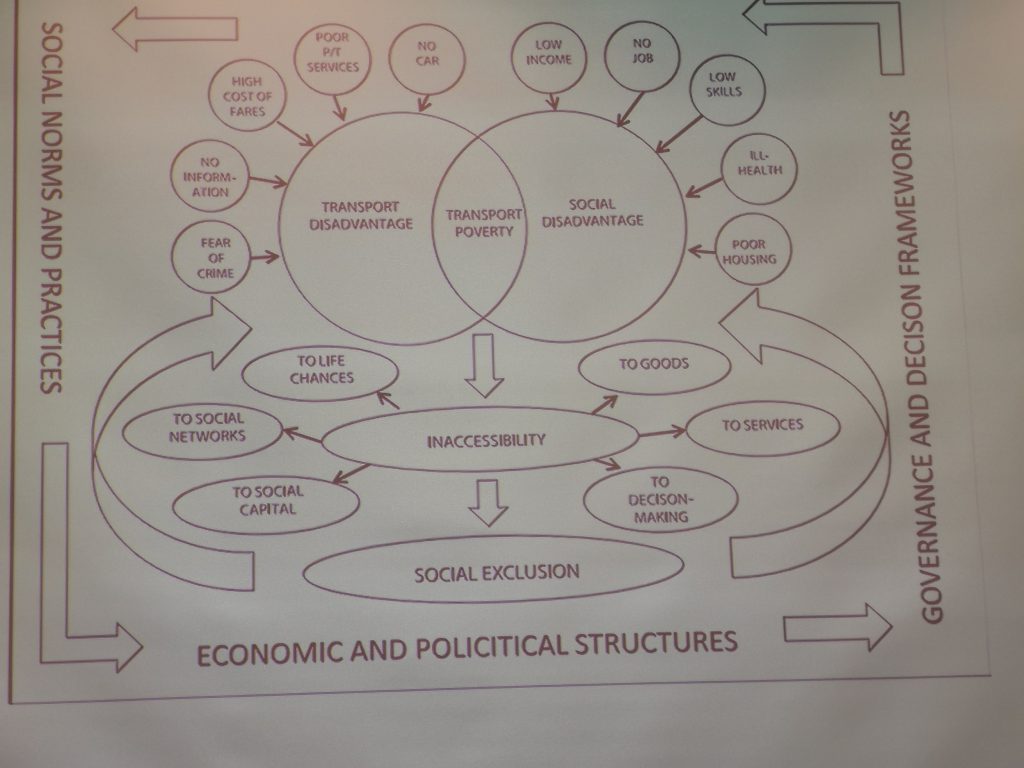
“Transport poverty also includes the cost-effectiveness of travel, are your expenses worth it in comparison to what you’re going to get out of it?
“Why is it that the public transport is so expensive as an option when it takes double the time to get where we’re going compared to private means of transport?”
Based on her research, professor Lucas branded transport poverty as a “person-based physical attribute”; most notably affecting elderly people, youngsters and the working class.
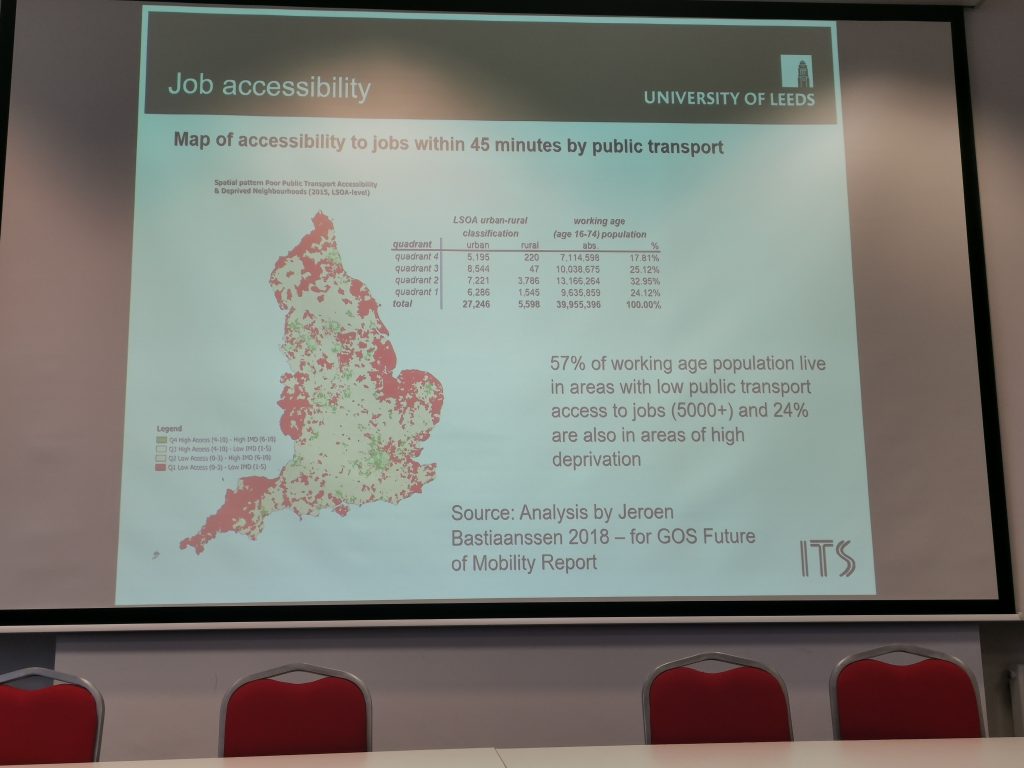
“If people don’t have a level of access to mobility resources, not necessarily a car, then what happens is that they get less access to public services and opportunities such as jobs, education and health care.”
Subsequently, this reduced access creates poorer life outcomes and leads to further social disadvantages.
On what kinds of action should be taken in order to reduce transport poverty in the future, professor Lucas said:
“We’re going to be in the world where there are more poor older people and we’ve got to accept that.
“There should be a different set of principles if what you want to do is plan for social inclusion. The biggest part of this is thinking about how the land is used. How to make most of it reachable not only by transportation, but also by just walking to there.
“Local authorities don’t really sit down and evaluate how different types of interventions will benefit the population.”
Presenting and facilitating today @UniversityLeeds Leeds Industrial Strategy event on Futute of Mobility representing on transport Inequalities and inclusion @ITSLeeds @UoLSSI with @KatyRoelich and Tim Foster from TfN. pic.twitter.com/PzuRMxyJSt
— Karen Lucas (@drkarenlucas) November 20, 2018
Manchester is one of the world leaders when it comes to planning for the reliable and sustainable transport of the future. Earlier this year, the metropolitan city made headlines at the European Sustainable Mobility Award Ceremony by becoming the top long-term planner for an integrated and multi-modal transport system.
TGfM’s plans to reduce car trips to just half of the total daily trips by 2040; prioritizing alternative travel options such as public transport, walking and cycling.















Recent Comments